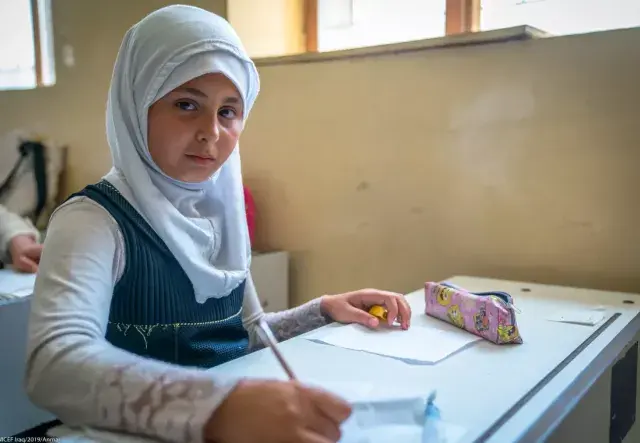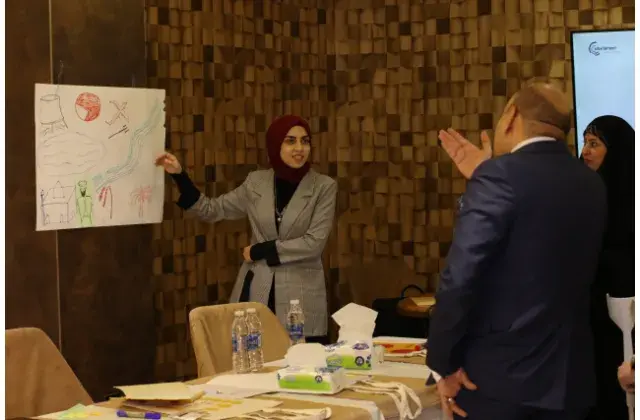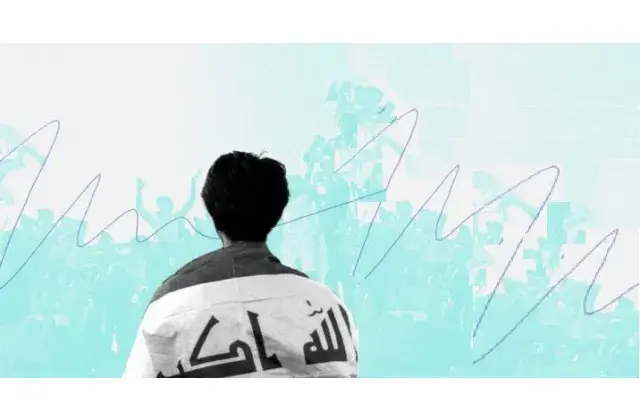International comparison and impact of Civic Education

Introduction and overview
The article compares Germany (in which Civic Education is implemented in a comprehensive way) with Egypt (a country having undergone a democratic change since 2011 with a lot of hopes and subsequent authoritarian backlash) and Iraq (being on the way to establish Civic Education as a contribution to Nation Building). From this comparison, consequences for the strengthening of Civic Education in Iraq will be presented. The brief analyses comprise three different aspects:
Framework.
How is the institutional framework for civic education in each country? Is there comprehensive access to Civic Education for all? Which institutions and historical developments do we see? This can be put in the broad context of the United Nations (UN) Sustainable Development Goals (SDG), more specifically SDG 4: “Ensure inclusive and equitable quality education and promote lifelong learning opportunities for all”.
Teachers and trainers
How is teaching and training being professionalized? With which attitude do teachers provide Civic Education? The internationally renowned meta-study by John Hattie has shown that in education the teacher as a person beats all other factors (like size of class, structure of the school, social background of students, learning material or media).“Passionate and inspired teachers” are the quality description of what is needed most – especially for interactive Civic Education.
Target groups
What is the main focus of what students should learn? How do different target groups profit from Civic Education? The International Association for the Evaluation of Educational Achievement (IEA) presented 2023 its third International Civic and Citizenship Education Study (ICCS) concerning 14-year-old students. Results show that action-oriented learning beyond civic knowledge as well as diverse and inclusive target groups are supportive to a comprehensive application of Civic Education especially in times of crisis.
Germany: Between professionalism and uncertainty
Germany has one of the, if not the most elaborated framework for Civic Education worldwide. After World War II, the allies started a massive program of ‘re-education’ to support Germans to become ‘good democrats’. Radio and TV-programs, materials, state based institutions and financial support led to a scene of Civic Education that is still vibrant today. There are numerous university-chairs focusing on school curricula as well as national and regional programs by the state (on tolerance, diversity and civic engagement) as well as private initiatives allowing for a comprehensive access to Civic Education at different levels.
Yet the so-called ‘PISA-shock 2000’ (a renowned international assessment on learning results in which Germany fell back internationally) led to a backlash concerning Civic Education: investments were since then mainly focused an reading, writing and natural sciences, time for civic education in schools was reduced more and more. Although there was an accompanying shift in focus of teaching away from knowledge (input of facts) to competence (outcome and ability to act), this shock instrumentalised many subjects to make students fitting parts of the German and European market. Civic Education as a participatory and also intercultural and inclusive part of nation building suffered from that – at least in the school system; there still is a vibrant scene of civic education provided by churches, trade unions and youth organizations.
More recently populist movements and succeeding right-wing parties led to a great uncertainty as to how to ‘defend democracy’ as many citizens have adopted a ‘taken-for-granted attitude’ to democracy but do not actively support or defend it, which is especially endangering minorities like people with migration background. In times of receding public money there are fierce discussions whether or not to massively invest in civic education as a strategic national goal.
Egypt: Between hope and despair
After Egypt’s independence 1922 civic education had the purpose of promoting Egyptian nationalism beyond its colonial history. With the extension of formal education, the focus was on teaching civic knowledge in social studies, Arabic language and religion. This happened in an environment that did not foster participation, questioning or independent thought. Participation and interaction were only introduced during the Mubarak era due to pressure from international donors.
The so-called ‘Arab spring’ 2011 led to a massive extension of support for Egyptian society with international money running diverse projects and training on civic education. There were two main challenges that could be observed in this context: firstly many international approaches especially from British/US origin focused on ‘tools and techniques’ and tried to provide management approaches for civil society. This led partly to the assumption that nation building could be done like following a project plan or transferring best practice from abroad like a blueprint; secondly, civil society needed some time to switch from a long-term self-understanding of being an opposition in resistance (and now ‘winner’) to understanding that participatory nation building needs to integrate a variety of perspectives, i.e. appreciating diversity as one of the most important civic values and accepting ‘opposition’ as fruitful.
The subsequent increasingly authoritarian ruling of Egypt undermined many former supportive approaches and led to a situation in which almost all participatory and inclusive attempts to do civic education, especially in schools, are under suspicion of ‘harming national security’. NGO registration laws and preventing international donors to support them effectively have led to a situation of despair in civil society and meant a backlash even into pre-Mubarak eras. In the formal sector, civic education mentions a number of civic values in various educational plans, in effect it focuses on loyalty to the country and participation in elections and civic values like freedom of speech, tolerance and participation are not alive in daily experience in schools or in the community.
Iraq: Between Nation Building and ongoing crises
There are only a few systematic studies to the situation of Civic Education in Iraq and Kurdistan. Since 2005 there were many changes and improvements in curricula at the ministerial level. Topics got more and more specific, moving from the question of poverty to literacy, human rights, teaching civic values and improve nation building. Parallel to this, international agencies have run model projects and developed material and training on Civic Education. At the moment, there are existing curricula and textbooks. What is missing mostly, are interactive value-based didactics and pedagogical methods, concepts and corresponding training material that focuses on teachers as change agents; as the studies indicate, teacher training is on of the highest desirables to install the specifics of Civic Education in the school system. Student-centered learning has to be trained specifically in challenging situations, as teachers tend to focus on what is familiar, providing information for memorization by students when environment conditions are insecure.
In civil society, there is a diversity of approaches which are value based and related to social skills; however, they rarely link to Nation Building and the responsibility of citizens and NGOs being an integral part of it. Focusing on tackling deficits in challenging conditions, they do not have the grater picture of responsibility in mind. Synergies could be reached when NGOs and schools work together and supplement their competencies in value-based training and access to the formal educational system.
Many of these attempts are undermined by ongoing challenging times: ethnic and religious divisions are a challenge for nation building and a common Iraqi identity; ISIS and ongoing terrorist attacks have meant a backlash on access to educational facilities in many regions; many people still do not have access to essential services, civilian protests for a better life are visible and many educational facilities are in bad state; also corruption is still present at many levels. Indermines institutional and legal, frameworks, hierarchies and long-term security in the educational system. Additionally current international armed conflicts and terrorist attacks affect many people on a daily basis.
Consequences and conclusions for Civic Education in Iraq:
From the findings of the different studies and papers we can draw some conclusions concerning the framework, the teachers and trainers and target groups of Civic Education in Iraq. The following points do not mean that they do not exist in Iraq, but they should be kept in mind and strengthened when using Civic Education to contribute to a comprehensive Nation Building.
This article was written by Florian Wenzel and is licensed under CC BY-NC 4.0.





